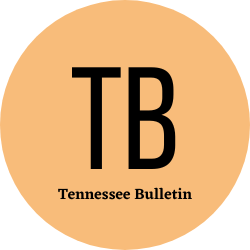What is Addiction?
by siteadmin

Addiction is a neuropsychological disorder characterized by an overwhelming urge to engage in maladaptive behaviors which provide immediate sensory rewards despite any harmful outcomes, such as drugs, alcohol or food.
Addiction is a serious yet treatable condition that negatively affects quality of life, relationships and health. Millions have successfully overcome addiction with professional assistance and dedication.
What is an addiction?
Addiction is a progressive disease involving changes to the brain's reward circuitry, manifested when people repeatedly use drugs and alcohol despite adverse consequences, even when using is harmful or illegal. Addiction impacts all socioeconomic groups and can lead to various health issues ranging from heart disease to depression.
Relapse can often be the catalyst to acknowledge one has an addiction problem and seek treatment. People addicted to substances or alcohol may struggle to overcome physical and psychological withdrawal symptoms when trying to stop using these substances or alcohol, complicating treatment efforts further.
Heroin or morphine have the potential to be life-threatening drugs; you should only attempt to quit them under medical supervision. Also remember that relapsing is common; it doesn't indicate failure.
How do you know if you or a loved one has an addiction?
Addiction can have serious repercussions for one's health, family, job, finances and quality of life. Recognizing the signs of addiction is key to taking corrective action – speak up sooner rather than later and address this with loved ones in a calm environment when possible – suggest calling a helpline, speaking to their healthcare provider or counselor, seeking treatment or joining support groups such as SMART Recovery or Narcotics Anonymous etc.
Unobtrusive signs of addiction include changes in behavior, spending money without explanation on drugs, borrowing or stealing to fund drug use, as well as paraphernalia like unusual pipes or small weighing scales being seen around them.
What are the signs of an addiction?
Addiction is a chronic disorder that impacts every aspect of life, including physical and emotional wellbeing, relationships, work and study. While misuse typically involves engaging in pleasurable activities that have more drawbacks than benefits, addiction often involves behaviors which strain relationships or inhibit daily living activities.
People living with an addiction experience noticeable changes in emotions, behavior and appearance. They may lie, change social groups or display unusual behavior to family and friends. Some will also experience physical symptoms of drug abuse, including bloodshot eyes with dilated pupils or vomiting/tummy aches that appear regularly – something loved ones often notice first as telltale signs. Others will have trouble sleeping or develop an enhanced sensitivity to pain.
What are the symptoms of an addiction?
Addiction occurs when someone cannot control themselves from using drugs or engaging in harmful behaviors despite knowing it causes harm and has negative repercussions for themselves, their family, work and social lives. Addicts often exhibit symptoms like declining health, lying about drug paraphernalia use or hiding it away to continue using.
People will also turn to drugs or unhealthy behavior as a coping mechanism for anxiety, depression and stress. Some individuals are predisposed more easily than others due to genetic predisposition or mental health conditions like depression, ADHD or post-traumatic stress disorder which contribute to addiction to drugs.
Substance addictions often manifest physically in ways such as bloodshot eyes, bad breath, shaking or trembling and unusual weight gain or loss. People may also conceal drug paraphernalia from friends and family as well as buy drugs with money they have stolen or borrowed from elsewhere.
What are the treatment options for an addiction?
Doctors may prescribe medications to alleviate withdrawal symptoms and diminish cravings, while people suffering from addictions could benefit from psychotherapy (talk therapy) as well as other forms of treatment, including group or family therapy or individual counseling sessions.
Intervention is sometimes organized by those close to those struggling with an addiction, usually consisting of health care providers, mental health professionals such as psychologists or counselors and drug and alcohol experts. An intervention allows loved ones to discuss their difficulties safely with health professionals before agreeing to seek treatment themselves. Addiction has many detrimental repercussions for one's employment or school performance, legal trouble and relationship strain – it may even cause overdoses, HIV infections and serious physical injuries or illnesses as a result of unsafe sexual encounters or accidents.
suboxone clinic Central City KY
https://anewstartclinics.com/central-city/
Addiction is a neuropsychological disorder characterized by an overwhelming urge to engage in maladaptive behaviors which provide immediate sensory rewards despite any harmful outcomes, such as drugs, alcohol or food. Addiction is a serious yet treatable condition that negatively affects quality of life, relationships and health. Millions have successfully overcome addiction with professional assistance and…
Recent Posts
- Premier Charlotte Fence Company, Offering Top-Quality Solutions
- Premier Charlotte Fence Company, Offering Top-Quality Solutions
- The Aging Population and Dentures: Addressing Oral Health Challenges in Las Vegas
- Burglar Proof Window Atlanta Revolutionizes Home Security with Innovative Patio Enclosure and Replacement Window Solutions
- Discover the Ultimate Microneedling Experience at House of Aesthetix
